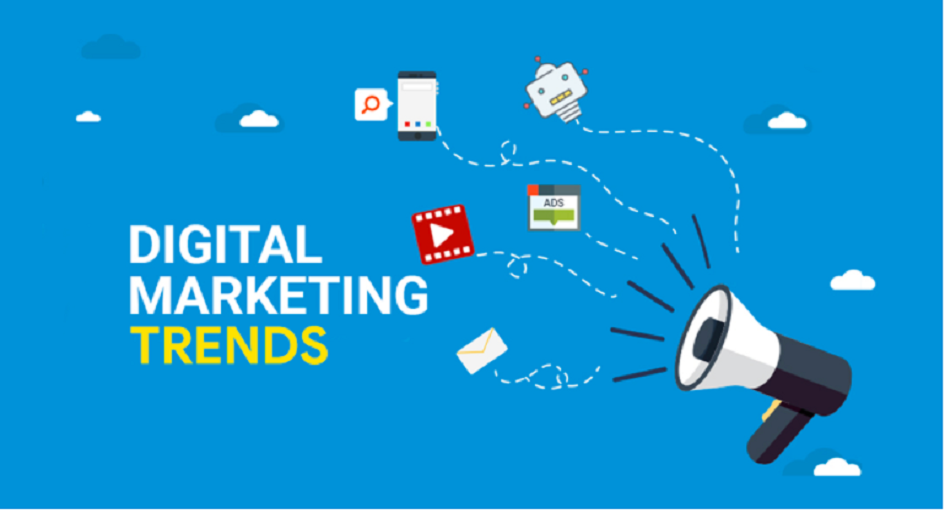
The world of digital marketing is ever-evolving, shaped by technological advancements, shifting consumer behaviors, and industry innovations. As we step into 2023, businesses must stay ahead of the curve by embracing the latest trends. This comprehensive guide dives deep into the top digital marketing trends for 2023, as analyzed by ChatGPT, to help you navigate the dynamic landscape and drive success in the digital realm.
Artificial Intelligence (AI) continues to revolutionize digital marketing. In 2023 digital marketing trends, AI-driven tools, and algorithms will play an even more significant role in personalizing customer experiences. From chatbots and virtual assistants to predictive analytics, AI enables marketers to understand consumer behavior, predict preferences, and deliver highly targeted content.
The prevalence of voice-activated devices like smart speakers and voice assistants has led to a surge in voice searches. Optimizing your digital content for voice search is crucial in 2023. Consider long-tail keywords, natural language, and conversational content to cater to voice search queries.
Video content remains a powerhouse in digital marketing. Short-form videos, live streaming, and interactive video experiences will continue to engage audiences. Businesses should invest in video production and leverage platforms like TikTok, YouTube, and Instagram Reels.
Non-Fungible Tokens (NFTs) have made waves in the digital world. Brands are exploring opportunities to create and monetize digital assets. Additionally, the concept of the Metaverse is gaining traction. Marketers need to understand these emerging ecosystems and how they can be leveraged for marketing campaigns.
As consumer privacy concerns grow, privacy-first marketing practices are paramount. With regulations like GDPR and CCPA in place, marketers must prioritize data protection and transparency. Strategies like zero-party data collection and first-party cookies will gain prominence.
Social media platforms are evolving into shopping destinations. The integration of shopping features on platforms like Instagram and Facebook allows users to make purchases without leaving the app. Marketers should leverage these opportunities for seamless social commerce experiences.
Consumers now expect personalized content experiences. AI-driven content recommendation engines, email personalization, and dynamic website content will be essential for delivering tailored messaging to audiences.
Diversity, equity, and inclusion will be at the forefront of digital marketing in 2023. Brands that embrace inclusivity in their campaigns will resonate with a broader audience and demonstrate social responsibility.
AR is expanding beyond gaming and into marketing. Brands can create interactive AR experiences that allow customers to try products before buying, enhancing the online shopping experience.
Consumers are increasingly eco-conscious, and sustainable practices matter. Businesses should emphasize their commitment to sustainability in marketing efforts, from product packaging to corporate social responsibility initiatives.
Big data analytics will enable hyper-personalization. By harnessing vast datasets, businesses can create highly customized experiences, from product recommendations to marketing messages.
Blockchain technology offers transparency and security in data management. It can be used for verifying the authenticity of products, securing ad transactions, and preventing fraud in digital marketing.
Content that disappears after a set time, as seen on platforms like Snapchat and Instagram Stories, continues to engage audiences. Ephemeral content is authentic, creating a sense of urgency that resonates with viewers.
Interactive content, such as polls, quizzes, and interactive videos, encourages engagement and data collection. Businesses should integrate interactive elements into their digital strategies.
Building online communities around brands and products fosters brand loyalty and word-of-mouth marketing. Businesses can create dedicated spaces for customers to connect and share experiences.
Local SEO and geotargeting will be crucial for businesses with physical locations. Optimizing for local search and delivering location-based offers can drive foot traffic and conversions.
Dark social refers to the private sharing of content through messaging apps and email. Marketers should find ways to track and measure dark social sharing to understand customer behavior.
Live events and webinars provide real-time engagement opportunities. Digital marketing trends allow brands to showcase expertise, interact with audiences, and gather valuable leads.
In conclusion, the digital marketing trends promise exciting opportunities and challenges. To stay competitive, businesses must adapt to these evolving trends and incorporate them into their marketing strategies. Whether through AI-powered personalization, immersive AR experiences, or privacy-focused practices, embracing the digital future will be essential for success in the ever-changing world of digital marketing.